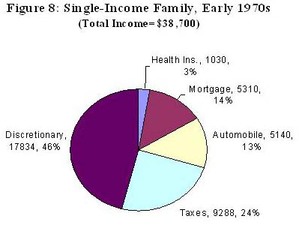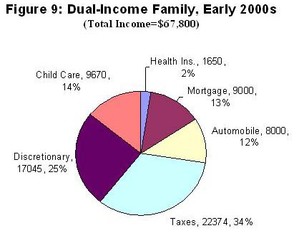Todd Zywicki at Volokh has an interesting post on what is driving hybrid car purchases in certain cities. While certain segments are driven by environmentalism and fuel economy, the real boom in certain cities has come with the legal change in some cities allowing single persons in hybrid cars to use the carpool lanes.
"'I'd say 95 percent of the people who buy a Prius say it's to get into HOV,'" said Jay Taye, sales manager at Ourisman Fairfax Toyota. "'They talk about the tax break and the HOV, and once in a while they say they prefer it for the gas mileage as well.'"
By the way, he links an absolutely dead-on article about public transit in the Onion here called --"Report: 98 Percent of Commuters Favor Public Transportation For Others"
The link between the Onion article and the Washington Post story referred to by Zywicki is that what people really want is a fast commute in their car, and they are willing to pay for it.
Several years ago, I sent in a proposal to the Arizona Dept. of Transportation for their new HOV lanes in the Phoenix area, though I never got a response back. I suggested that HOV lanes probably did not really increase carpooling, since they probably just shifted vehicles that would have already been carrying 2+ people into the faster lane. Why should I get this artificial subsidy of a dedicated lane when I am driving my kid to a soccer game but not when I am driving myself to do productive work? Either way, the lane is not changing my behavior.
Anyway, I suggested that instead, AZ DOT should create a number of special passes for exclusive use of the HOV lane. The number of passes should be set as the largest number that could be issued while keeping the HOV lane moving at the speed limit at rush hour. Maybe 5000? Anyway, they would have the stats to set the number, and it could be adjusted over time. I proposed that they then auction off these passes in a dutch auction once a year. I posited that the clearing price might be as high as $1000, thus raising $5,000,000 a year that could be used for other transportation projects.
I have friends that said I was crazy, that no one would spend $1000. Back then, I argued it in two ways. First, thousands of people in town spend not $1000 but tens of thousands of dollars, in the form of purchasing a nicer-than-basic-car, to make their driving experience better. In those terms, to the Mercedes or Lexus owner, $1000 was nothing and in fact the price might go higher. Second, if each pass holder saved 15 minutes per commute, or 30 minutes per day over 250 work days, they would save 125 hours of their time each year. Bidding just $1000 for this would mean that people would have to value their free time (since commuting generally comes out of free and family time) at $8 an hour. I certainly value my free time at a MUCH higher rate than this.
This article cited above effectively adds another data point to what people might pay. To buy a Prius, they are spending at least $5000-$10,000 more than a similar car that can't go into the HOV lane, and probably even more when you consider features they may be giving up to have the car.
Today, I would bet that the clearing price for 5000 such passes may be $3000-$5000, thus increasing the annual revenue to the city/state as high as $25,000,000.
By the way, though it is a bit different than what I am suggesting, the best related plan that I know of that has actually been executed succesfully is congestion pricing in central London.
UPDATE: Dang, reading up further in Volokh, Zywicki anticipated my post with a similar one here.

